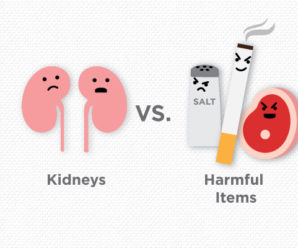 What is the current goal for healthy blood pressure in adults?
What is the current goal for healthy blood pressure in adults?
Blood pressure is one indicator of overall health. You can have high blood pressure and not know it. Prolonged high blood pressure can increase your risk for serious health problems.
Almost 60 million people in the United States have high blood pressure, called hypertension. Only about half manage to keep it in a healthy range.
Blood pressure has two measurements: systolic pressure and diastolic pressure. Systolic pressure is the force of your blood against artery walls when your heart beats and pumps blood. Diastolic pressure is created between heartbeats and is lower than systolic pressure. Healthy blood pressure for adults is less than 120/80 mmHg.
For the majority of people diagnosed with primary hypertension, there’s no identifiable cause. Secondary hypertension is diagnosed less often and has an identifiable cause, such as kidney disease or other endocrine problem.
Treatment for hypertension depends on its stage.
Pre-hypertension is a systolic range between 120-139 mmHg and diastolic range of 80-89 mmHg. Treatment often consists of lifestyle changes, such as improving diet, exercise and losing weight.
Stage 1 hypertension is a systolic range between 140-159 mmHg and diastolic range of 90-99 mmHg. Treatment usually consists of one medication and lifestyle changes.
Stage 2 hypertension is a systolic range greater than or equal to 160 mmHg and diastolic range greater than 100 mmHg. Two medications and lifestyle changes are often needed for treatment.
As you age, it’s more likely systolic hypertension will develop. Medical providers continue to re-evaluate long-term benefits of how to treat hypertension later in life, because it becomes more difficult to control.
Risk factors for high blood pressure include diabetes, age, family history, weight and lack of physical activity, alcohol consumption and for women, use of contraceptives.
If you are overweight, eat foods high in sodium or have a more sedentary lifestyle, your blood pressure is more likely to increase. To help reduce your risk for high blood pressure:
- Choose foods low in sodium, calories and fat
- Choose foods high in fiber
- Limit portion sizes
- Maintain a healthy weight, or lose weight if you’re overweight
- Regularly exercise
- Reduce or omit alcoholic beverages
Talk with your doctor if you’re concerned about your blood pressure. If you’ve been prescribed blood pressure medication, take your medication as prescribed and have your blood pressure checked regularly by your health care provider.
*This post submitted by Dr. Craig Santolin







Leave a Reply